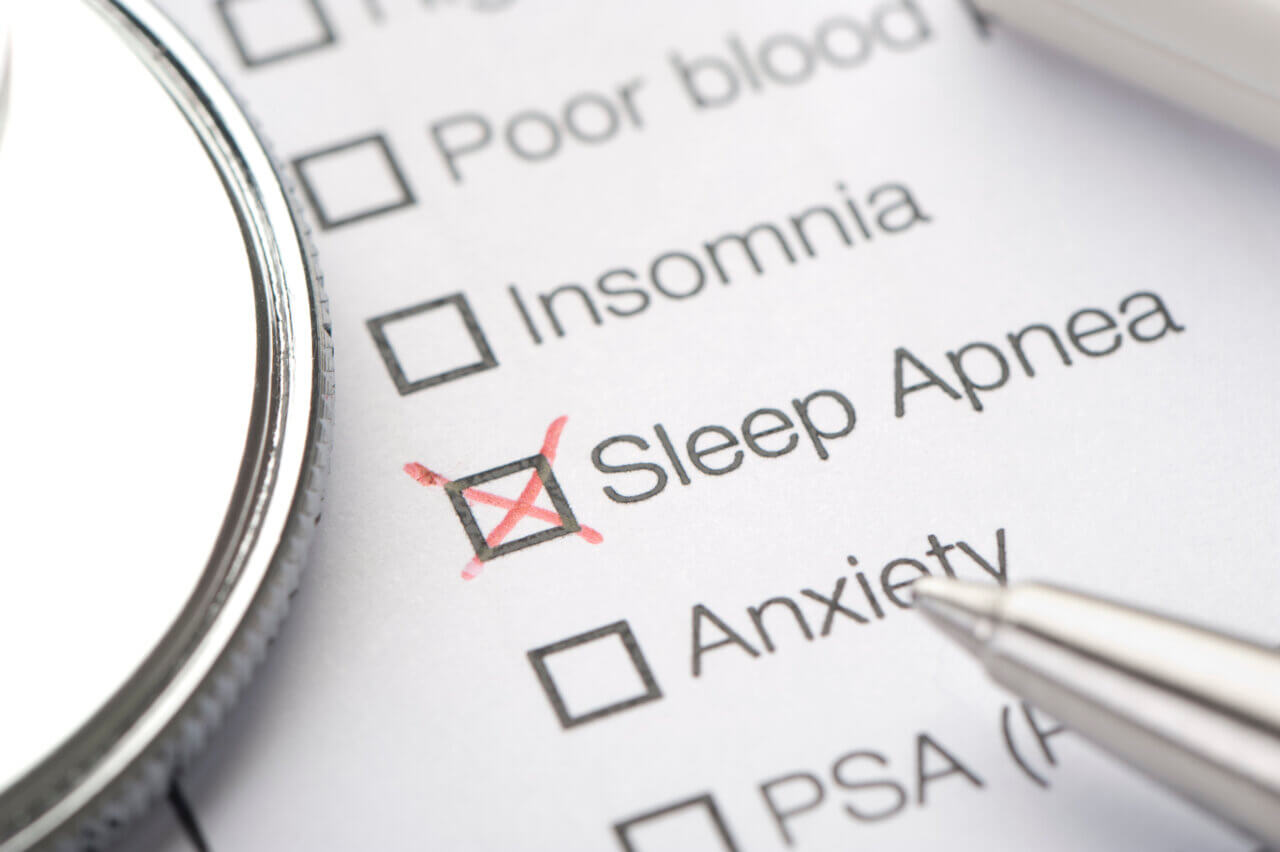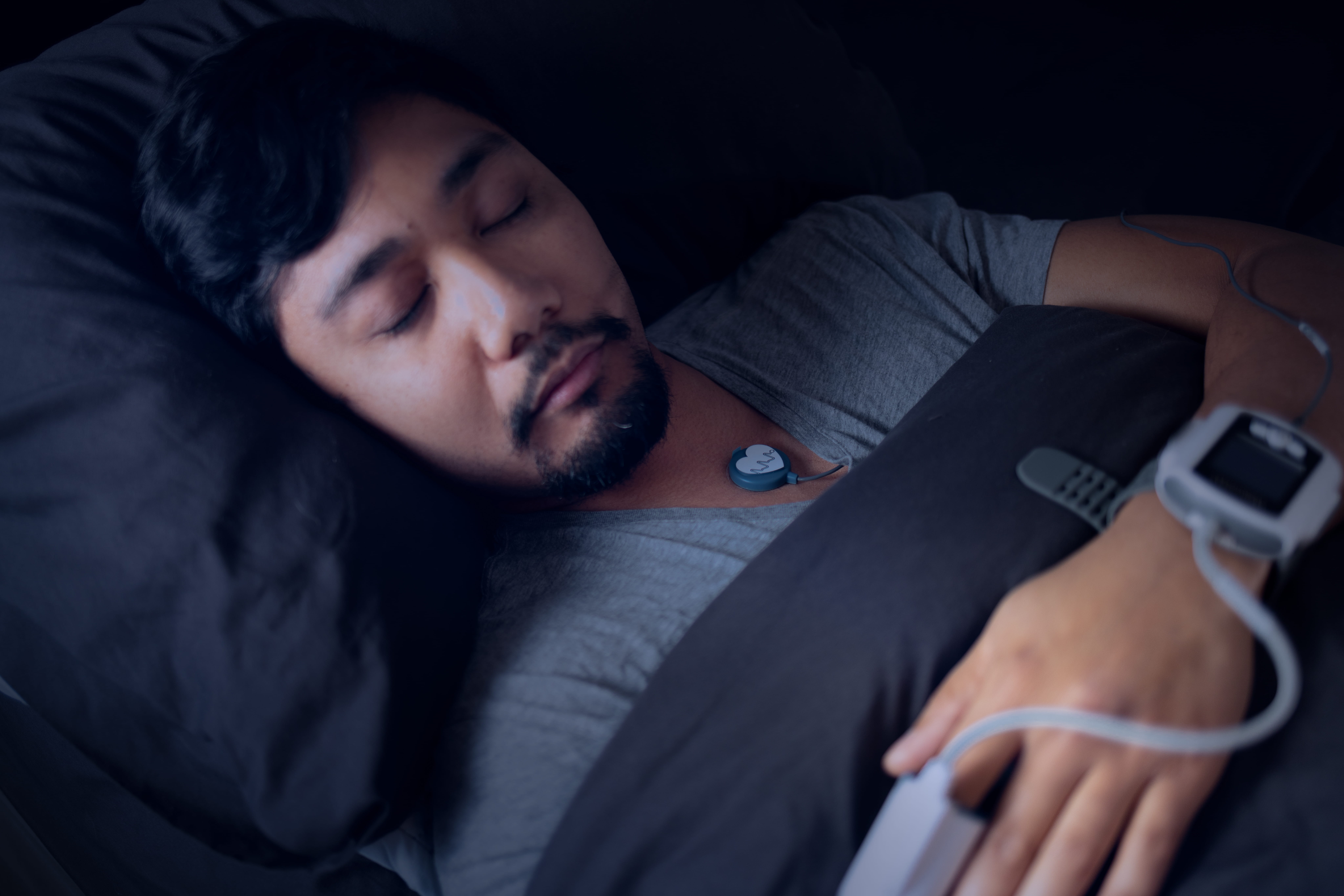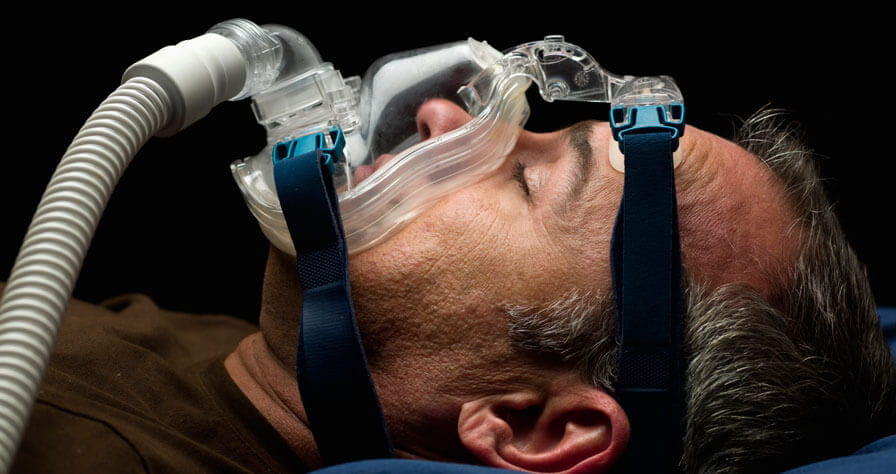Sleep Apnea Test at Home

Sleep apnea (sometimes called obstructive sleep apnea or OSA) is a condition that occurs when the natural relaxation of your throat and chest muscles, combined with a narrowed airway, interrupts your breathing as you sleep.
If your sleep apnea goes undiagnosed and untreated, it can cause serious health problems, including:
- Cardiovascular disease
- Stroke
- Hypersomnia (the inability to stay awake during the day)
- Metabolic disease
- Vehicle accidents
- Workplace mistakes
And these issues can also significantly decrease your quality of life.
Doctors have historically diagnosed sleep apnea using a one- or two-night in-lab sleep study, which isn’t always convenient. Consequently, some people who likely have sleep apnea don’t get tested, diagnosed, or treated.
How to Test for Sleep Apnea at Home
In recent years, doctors and researchers have developed at-home tests for sleep apnea. These home sleep apnea tests (HSATs) aren’t appropriate for everyone, but for those who can take them, they greatly increase the convenience of being tested for the condition.
The test is performed using a single-use, disposable device that a doctor sends home with you or can have shipped to your home. You can apply the device without assistance and sleep wherever you’re most comfortable in your home.
Data from the device is uploaded securely to a cloud-based database from a smartphone app. Once the doctor confirms they’ve received the data, you simply discard the testing device.
After reviewing the results, the doctor or sleep specialist discusses them with you. So, while you administer the test yourself, you don’t need to know how to read sleep apnea test results.
The conversation about your test results can occur at the doctor’s office or in a video visit. Ultimately, this new process maximizes convenience and minimizes travel and time away from work.
What Does an At-Home Sleep Apnea Test Measure?
At-home sleep apnea tests vary in what they measure. However, common test metrics include:
- General respiratory activity
- Chest motion
- Breathing patterns
- Snoring activity and intensity
- Blood oxygen level
- Heart rate
- Nocturnal movement (called actigraphy)
- Sleep position changes
It’s important to know that in-lab sleep studies may provide more detailed information. For instance, they may give your doctor a better overall measurement of your sleep patterns and quality. If that information is essential for diagnosing and treating your condition, an in-lab study may be more appropriate for you.
At-Home Sleep Apnea Testing as the Key to Effective Treatment
If your at-home testing results indicate you have sleep apnea, your doctor will recommend treatment that can include:
- Lifestyle changes such as getting more exercise, losing weight, quitting smoking, and reducing your alcohol consumption
- Devices like specialized oral appliances (mouthpieces) or a continuous positive airway pressure (CPAP) machine
- Various types of surgery in severe cases
Learn More Sleep Apnea from Baptist Health
If you struggle to sleep well and think breathing issues may be the cause, you should talk with your Baptist Health physician. They can discuss sleep apnea testing options and refer you to the experts in our Sleep Center if appropriate.
If you don’t yet have a Baptist Health doctor, you can find one online using our provider directory.
Next Steps and Useful Resources
What Happens with Untreated Sleep Apnea?
Understanding Sleep Apnea
7 Signs of Sleep Apnea



